commentary Commentary
Commentary: Sabah’s surprise results – and how Warisan lost big in state elections
Warisan should have paid attention to Kadazandusun Murut concerns over livelihoods and undocumented migrants, says James Chin.
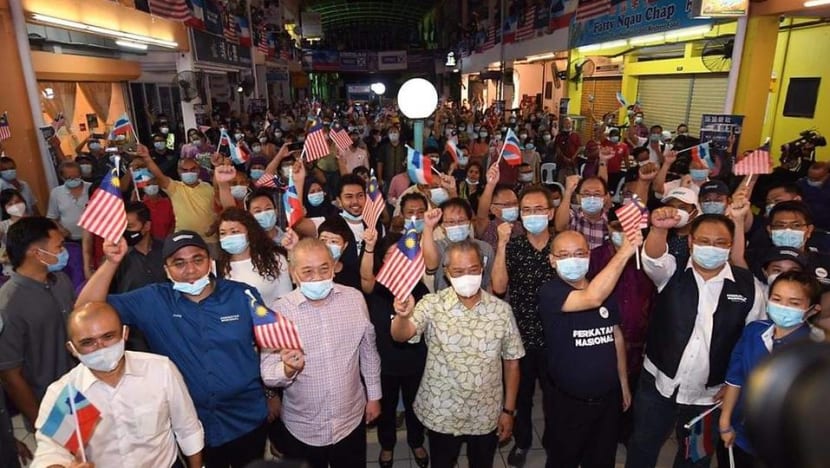
Malaysian Prime Minister Muhyiddin Yassin poses with Sabah residents in Luyang. (Photo: Prime Minister's Office)
HOBART: On Saturday (Sep 26) night, Gabungan Rakyat Sabah (GRS) caused an upset when it won the Sabah elections. It won 38 of the 73 constituencies.
Warisan Plus, the incumbent, took 32 seats while independents took the final three seats. When the results were announced, one of the three independents joined GRS giving it a total of 39 seats.
Prior to polling day, most analysts gave Warisan the lead and expected Warisan to win between 40 to 45 seats.
Few had predicted Warisan would win fewer than the magic number of 37, the minimum number needed to form a government. After all, on social media, Warisan seemed to be doing obviously much better than GRS.
Shafie Apdal, Warisan’s chief minister, used the catch phrase: “We are here to build a nation, not a particular race or religion.” He combined it with Sabah nationalism. This was extremely popular with the populace, especially the Chinese community.
Here was a leader who was willing to embrace diversity, in contrast to GRS, led by Perikatan Nasional (PN) and the Barisan Nasional (BN), both Malay-centric alliances preaching Malay supremacy.
READ: Commentary: Sabah state election ignites fresh Game of Thrones jostling in Malaysian politics
READ: GRS victory in Sabah state election: What this means for PM Muhyiddin and politics at the federal level
On top of that, Warisan secured very public support from Richard Malanjum, the ex-Chief Justice of Malaysia. Malanjum was widely admired in Sabah, as the first indigenous Chief Justice and the first Chief Justice from East Malaysia. In fact he was offered a seat by Warisan but turned it down.
Another well-respected senior Kadazan elder, Bernard Dompok, also publicly support Warisan. Dompok was Malaysia’s first ambassador to the Holy See.
IMMIGRANT ISSUES LED TO WARISAN LOSING KDM HEARTLAND
So what happened? The short answer is while Warisan was relatively successful with East Coast Muslim seats and urban seats, its campaign tanked in the heartlands, among the Kadazandusun Murut (KDM), comprising three of the biggest indigenous groups in Sabah.
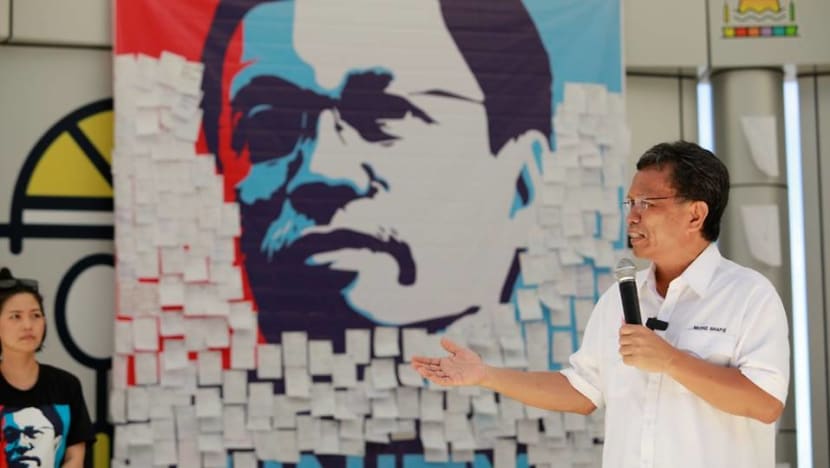
The bulk of the KDM seats in the interiors were won by PBS and STAR, local parties associated with the KDM community. PBS was established by Pairin Kitingan, the huguan siou (paramount chief) of the KDM, while STAR was founded by his brother Jeffrey Kitingan.
Jeffrey Kitingan is known in Sabah as “Katak King”, a politicians who jumps from party to party, and a Sabah nationalist. In fact, Jeffrey was detained under the infamous Internal Security Act in the 1990s for allegedly plotting to take Sabah out of Malaysia.
Warisan’s problem with the heartland KDM community starts from the widely held belief that Warisan is a party sympathetic to illegal migrants (PTI). PTI are undocumented migrants from the Southern Philippines, said to have been naturalised as Malaysians for decades in order to help the federal government skew the electoral roll in favour of Muslims.
READ: Commentary: Malaysian politics is going through a midlife crisis
READ: Commentary: Malaysia goes slow on COVID-19 reopening for good reason
Shafie himsef was accused of being pro-PTI because his extended family allegedly came from the Southern Philippines.
This image was not helped by rumours he had promoted mostly Bajau and Suluk people in the civil service, from his political base, Semporna, which he did little to dispel.
The KDM polity is very sensitive to these sort of rumours. Many KDM are angry that PTI have “taken over their land” yet the Warisan allowed these rumours to fester unchallenged.
While immigrants make up close to a million in Sabah on paper, the conventional wisdom is that at least a third of Sabah’s population with Malaysian citizenship are PTI given citizenship during Mahathir’s prime ministership in the 1980s.
OVER-CONFIDENCE
The Warisan campaign was also lacklustre in KDM areas, almost to a point of being over-confident. UPKO, the main Warisan proxy in the KDM heartland, ran a disorganised campaign. In some kampungs, UPKO campaign workers simply didn’t know how to handle complaints by local residents.
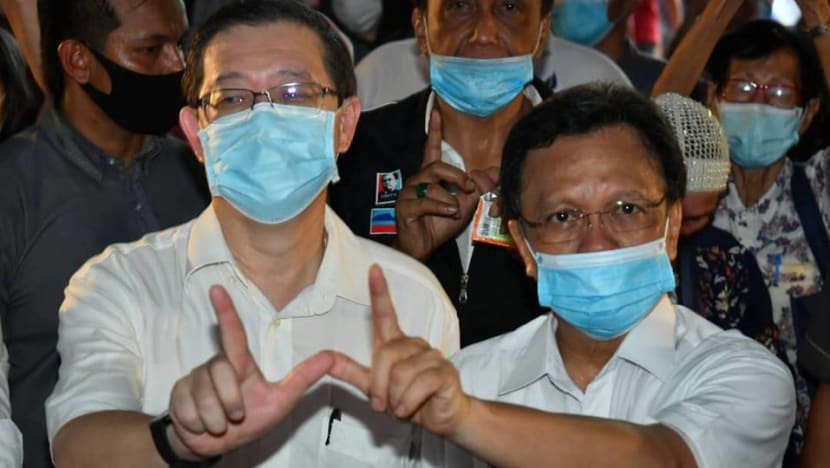
In fact, the UPKO campaign was so badly run, its leader Wilfred Madius Tangau lost his seat.
Warisan campaigners took for granted that younger KDM voters would support them, but many worked in the urban areas and outside Sabah, and did not return to vote.
Fears of COVID-19 and the difficulties of flying from Peninsula Malaysian led to this group becoming a no-show, leading to a lower overall turnout.
STATE OF THE ECONOMY WAS A FACTOR
The overall state of the economy also dampened support for Warisan, as the incumbent state government.
Vote counts show Warisan had been popular in urban and semi-urban areas but less so in the KDM heartland. Despite being in government for two years, none of its economic programmes had traction with rural KDM folks.
Many KDM villagers are angry Warisan did not fulfill its promise of monetary aid. Warisan representatives had promised some villagers RM300 (US$72) each but the money never arrived.
READ: Commentary: Malaysia in a delicate balance after Najib Razak’s conviction
READ: Commentary: Malaysia’s political centre has shifted but national leaders are still searching for it
Not living up to its promise of cash grants during COVID-19 seeded doubt among the KDM about the Warisan government’s sincerity and ability to pay its bills.
In contrast, many received cash from the PN federal government by way of national schemes including the Penjana and Prihatin stimulus packages, reinforcing GRS’ argument that only by having parties allied with the federal government in charge of Sabah can government support and aid flow through.
In fact, despite the traditional theory of a flight to safety, the state government Warisan ended up the whipping boy for the poor performance of the Sabah economy over the past two years.
The poor economy also had a huge impact on the rural economy, where rumours of vote buying in small communities like Kuala Penyu have been rife.
HUGE POLITICAL IMPLICATIONS
While GRS secured a surprising, stunning victory, it’s important to keep in mind that this does not represent a sea change in Sabah voters’ political sentiments.
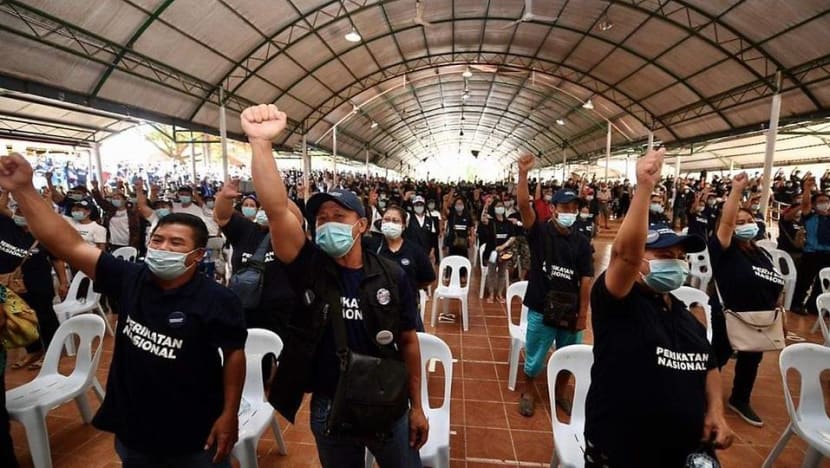
After all, Warisan managed to get about 2,000 more votes than GRS, a rather insignificant difference that meant Warisan and GRS were essentially tied if one looks at the popular vote.
Yet, the political implications of GRS’ win are significant, not only debunking the widely held myth that the Warisan Plus government had been incredibly popular but also demonstrating how insidious rumours about immigration and population can unseat a government if left unaddressed.
GRS' victory also suggest the “Sabah for Sabahans” campaign and the push for East Malaysia autonomy under the 1963 Malaysian Agreement (MA63), while popular, cannot displace bread-and-butter concerns at the ballot box.
READ: Commentary: The ghost of Borneo, talk of secession are back to haunt Malaysia
READ: Commentary: The East Malaysia secession grapevine, an absolute headache for Malaysia Day
Had Warisan been able to stir the economy, their narrative would have been more powerful.
This time around, Sabah voters simply did not think they can do without the federal government’s financial support.
While they were broadly supportive of the “Sabah for Sabahans” mantra, the fear that Warisan could not do anything for them economically led them to choose living with the federal government instead.
How this election played out will be something on the minds of the federal government and Sarawak for some time, given how Sarawak is due to head to the polls before the middle of next year.
Like Sabah, Sarawak has seen more nationalist sentiments bubble to the surface by way of a growing Sarawak-for-Sarawakians movement and looming calls for autonomy via MA63.
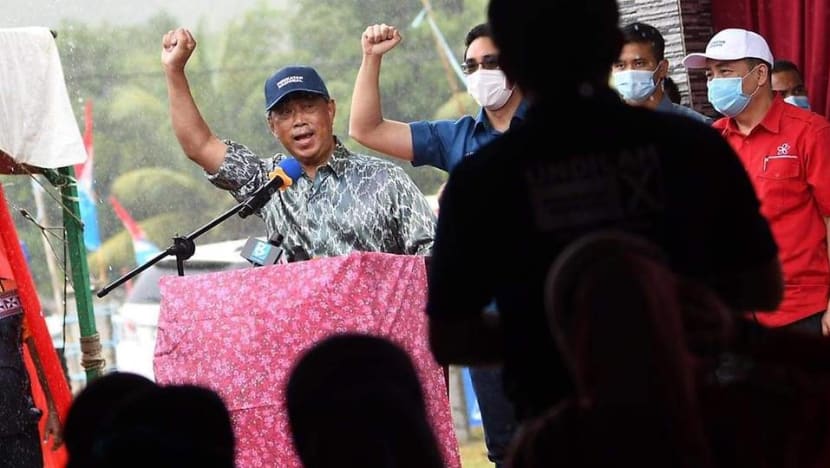
But unlike Warisan, GPS, the ruling coalition which has 20 seats in Parliament, does not appear to have financial problems. In fact, it has just received more than RM2 billion from Petronas as part of state-imposed sales taxes, a request made to Prime Minister Muhyiddin Yassin in return for GPS’ support for the PN government.
MUHYIDDIN IN A STRONGER POSITION FOR NOW
PM Muhyiddin will benefit politically from GRS’ victory. He can take credit for GRS' win since it was PN who funded the bulk of GRS’ campaign and operations in the KDM heartland.
Symbolically, Muhyiddin can also take direct credit. It was his face on almost all the GRS posters, despite the fact he was not a candidate. Never mind that it was because GRS component parties could not decide on a figure head for a chief minister designate whose face they should use.
This problem still plagues GRS. Despite winning, they took some time to agree on the chief minister.
Warisan still has a chance to engineer defections and stay in government, similar to what transpired after the 2018 General Election. If that happens, Muhyiddin will be weakened politically.
But if the GRS state government is sworn in successfully on Tuesday (Sep 29), Muhyiddin’s political stock will rise. He will not only be able to fend off attacks from PKR leader Anwar Ibrahim who mounted a failed attempt to depose PN from Putrajaya last week but also from UMNO eyeing Muhyiddin’s position.
But that’s another story for another day.
Professor James Chin is Professor of Asian Studies at the University of Tasmania and Senior Fellow at the Jeffrey Cheah Institute on Southeast Asia.














